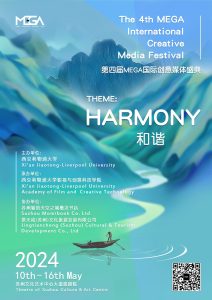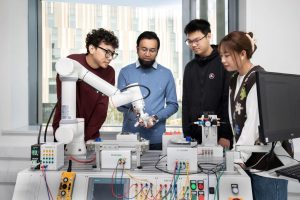July 31, 2017
Professors and PhD students from around the world gathered at Xi’an Jiaotong-Liverpool University for a week-long summer school on crowdsourcing.
The ACM Summer School included lectures, assignments with supervision and feedback from tutors, a visit to Shanghai-based design company Design2Gather that utilises crowdsourcing in its design processes, and a ‘hackathon’.
Lecture topics included: guidelines for designing crowdsourcing platforms; crowd motivators; ethical implications; collaborative aspects in crowdsourcing; location-based crowdsourcing; and the Chinese context of crowdsourcing.
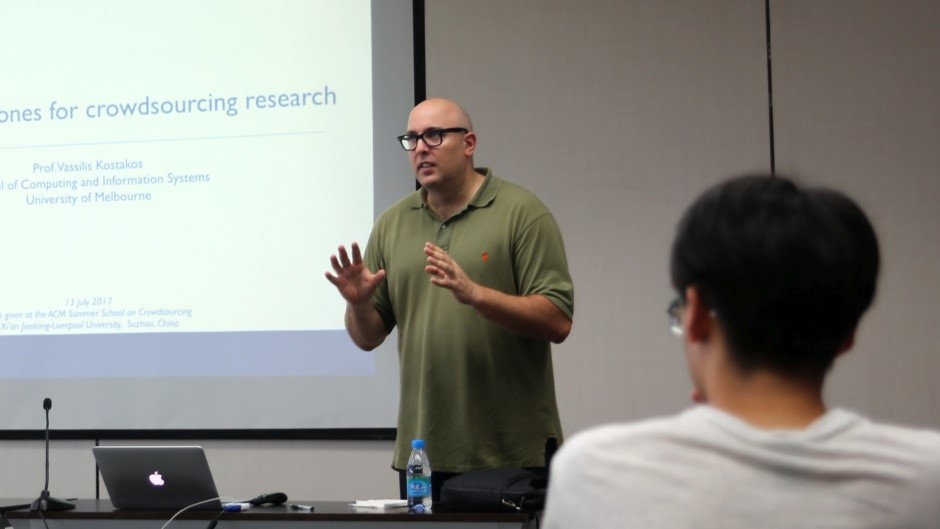
Professor Vassilis Kostakos (pictured above) from the University of Melbourne, Australia, delivered a lecture on using smartphones for crowdsourcing research projects:
“Most research today in Human-computer interaction (HCI) takes the following approach: we say, ‘We study people, we understand people, and so we can build better technology’ – cars, smartphones, etc.,” he said. “I’m trying to convince everyone that we can and should do the exact opposite – if we study technology we can understand people better.”
Professor Kostakos explained how the ‘footprints’ people make when using digital technology generate enormous amounts of data that can be utilised by researchers in ways never before possible.
“We should think of smartphones not just as commodities, but as scientific instruments that can help us gain profound insights into people and society,” he said.
Smartphones allow researchers to do ‘non-invasive’ sensing – I.e. collecting data directly from large numbers of individuals ‘in the wild’ rather than from a small number of test subjects who have been connected to expensive and uncomfortable sensing equipment in a laboratory.
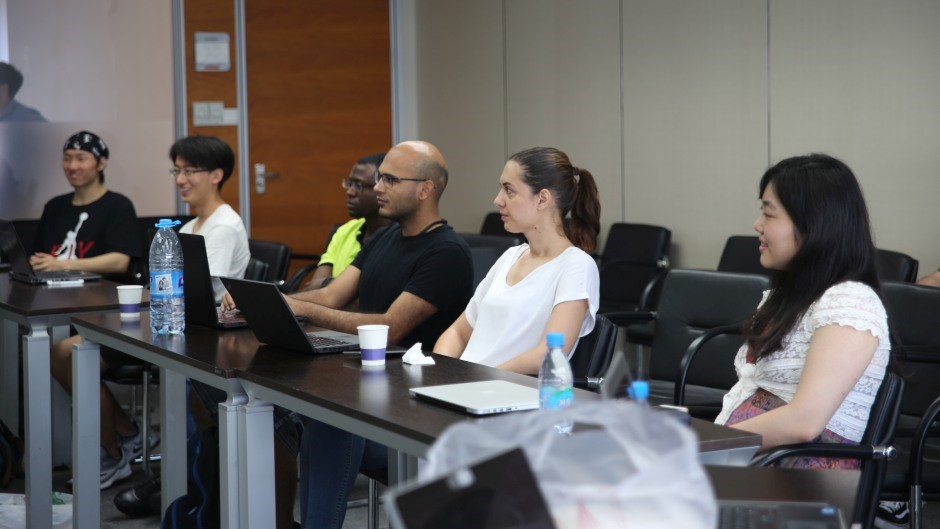
The event was organised by Dr Konstantinos Papangelis, lecturer in the Department of Computer Science and Software Engineering at XJTLU, and Dr Vassilis-Javed Khan, assistant professor in the Department of Industrial Design at Eindhoven University of Technology, the Netherlands.
“Crowdsourcing is an emerging trend that promises to transform collaboration and creation in several domains,” said Dr Papangelis. “These include creative work, research, business, and cultural cooperation. As such it represents a field of immense interest for research but also a tool that students can leverage during their studies.”
Other speakers at the summer school included Professor Yong Yue from the Department of Computer Science and Software Engineering at XJTLU, Dr Ioanna Lykourentzou from Luxembourg Institute of Science & Technology, and Bram Broeken of Design2Gather.
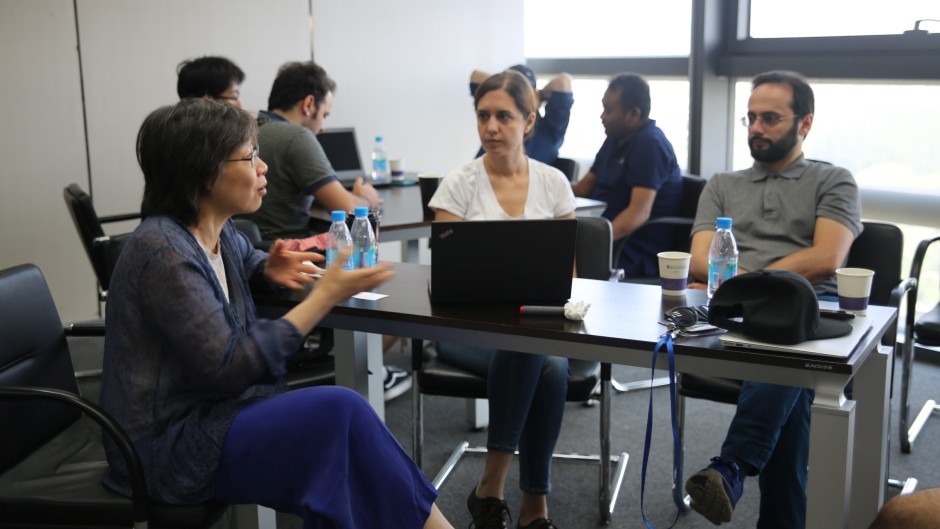
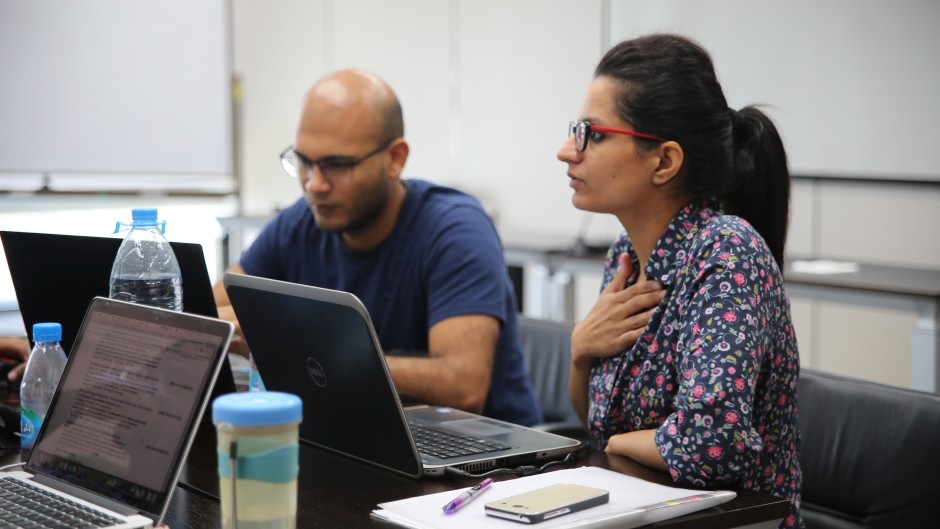
The crowdsourcing summer school will feature in the Interactions magazine of the Association for Computer Machinery (ACM), the principle sponsor of the event, as well as in multiple blogs in the HCI world, and is part of a planned series of events, the next one to be held in Argentina.
(writer and photographer: Danny Abbasi)
July 31, 2017
